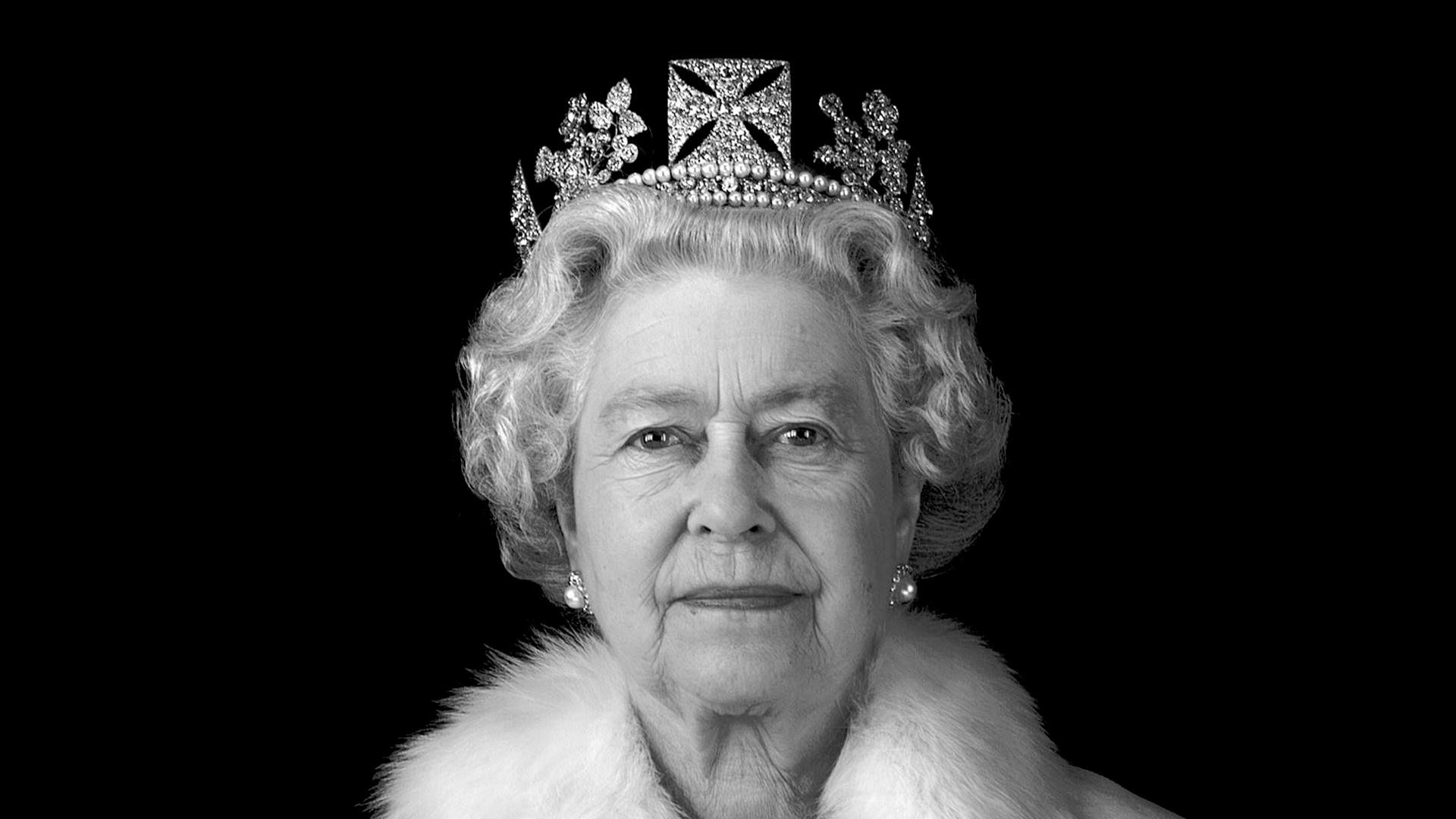How Maori remember the Queen
- Published
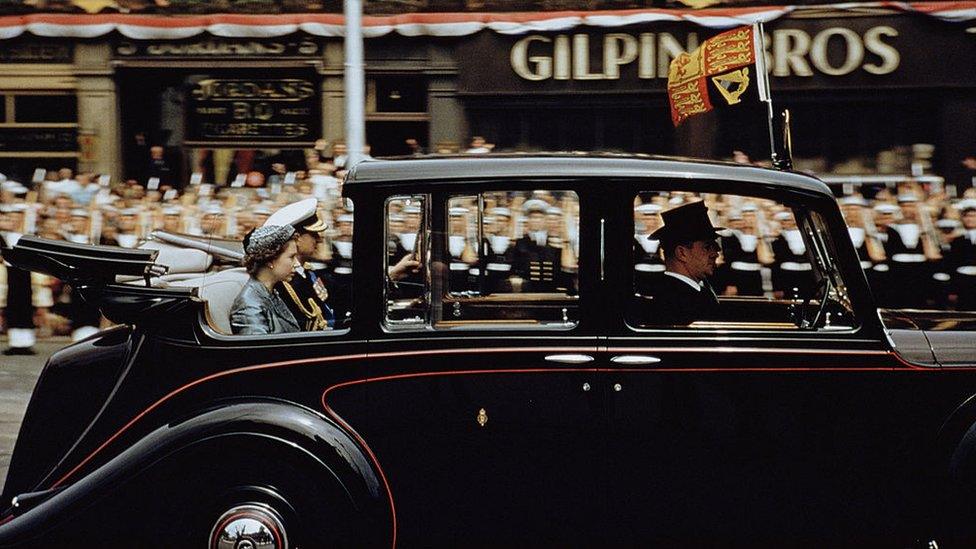
Queen Elizabeth II was the first reigning British monarch to visit New Zealand
Sir Tipene O'Regan has dedicated his life to battling the Crown as a leader of the Ngāi Tahu tribe, trying to redress the horrors of New Zealand's colonial past.
And yet he holds a deep affection for Queen Elizabeth II, a respect he believes she earned.
"She had a huge sense of probity and what was right. And she also understood very much the mixed history of colonialism," says the 83-year-old, who has been named New Zealander of the Year for 2022, and is known to be a shrewd negotiator on behalf of his Māori tribe.
He is speaking to the BBC at a Māori heritage centre in Christchurch. He walks to a plaque on the wall, stops and points at it with his elaborately carved tokotoko or ceremonial walking stick, a symbol of his authority and status.
"A lot of people ask me: what are some of the greatest achievements in your lifetime O'Regan - well that there is one of them."
The plaque contains an extraordinary apology from the Crown written in both English and Māori.
It expresses "profound regret" for the illegal seizure of Māori land by British colonisers. This particular document on the wall in Christchurch is specific to the Ngai Tahu tribe.
But the first apology was enshrined in law and signed personally by the Queen in 1995. The original document also returned 39,000 acres of land the British had forcibly taken in the Waikato region - this was the first major settlement of historical confiscation claims, and the only New Zealand law to be given royal assent in person by the Queen.
"That had a profound impact on our whole conversation in this country. And she knew precisely what she was doing as she framed those words," Mr O'Regan says.
"That has always impressed me about both her and those of her children that I've engaged with. They are very literate in the nuances of our political and cultural evolution."
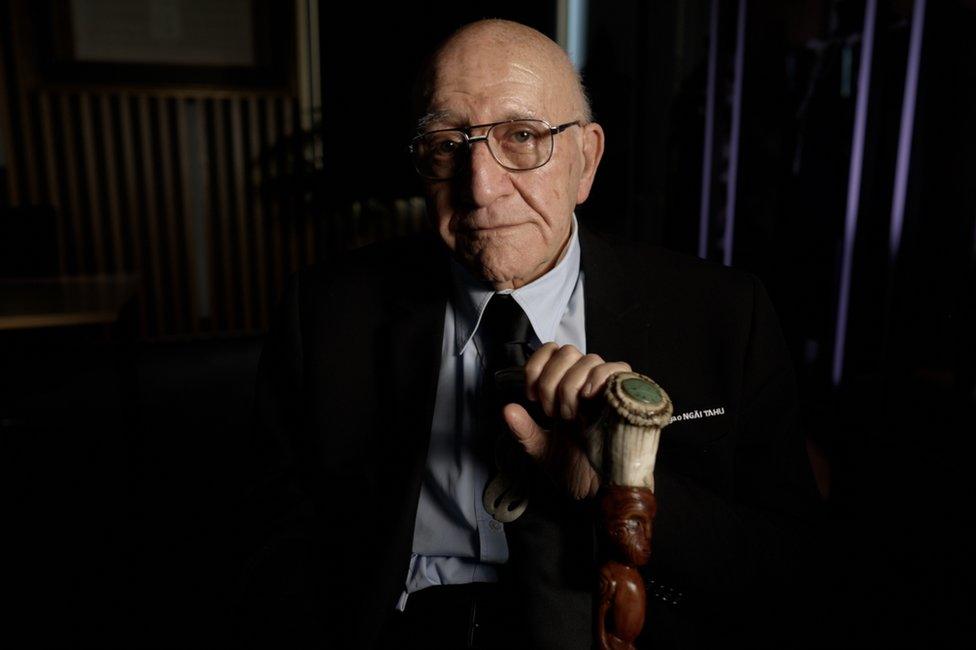
Sir Tipene O'Regan, a senior representative of his Māori tribe, holds a deep affection for Queen Elizabeth II
New Zealand's relationship with the Queen started well. It's thought that three out of every four people lined the streets to see the royal couple when she became the first reigning monarch to visit the country in 1953. She was 26 and became the Queen just the year before.
Her tour schedule had her meeting Maori leaders for a matter of minutes. But she tossed that notion aside after the Māori Princess Piki invited her to talk over a cup of tea.
The bonds deepened after Princess Piki became the Māori Queen of Waikato-Tainuiregion. The two met many times.
But not every visit was so cordial.
One of the most heated was in 1990. She was there to celebrate the 150th anniversary of New Zealand's founding document - the Treaty of Waitangi. It was signed by Queen Victoria in 1840 and contains a solemn promise by the Crown to protect Māori culture and lands.
One protester, angry at protracted treaty settlements, flung a wet black T-shirt at her.
The Queen responded in her speech: "We are strong enough and honest enough to learn the lessons of the last 150 years and to admit that the Treaty has been imperfectly observed."
Mr O'Regan described this as "the epitome of British understatement".
But it was, at the very least, an acknowledgment that the relationship between monarch and Māori needed work.
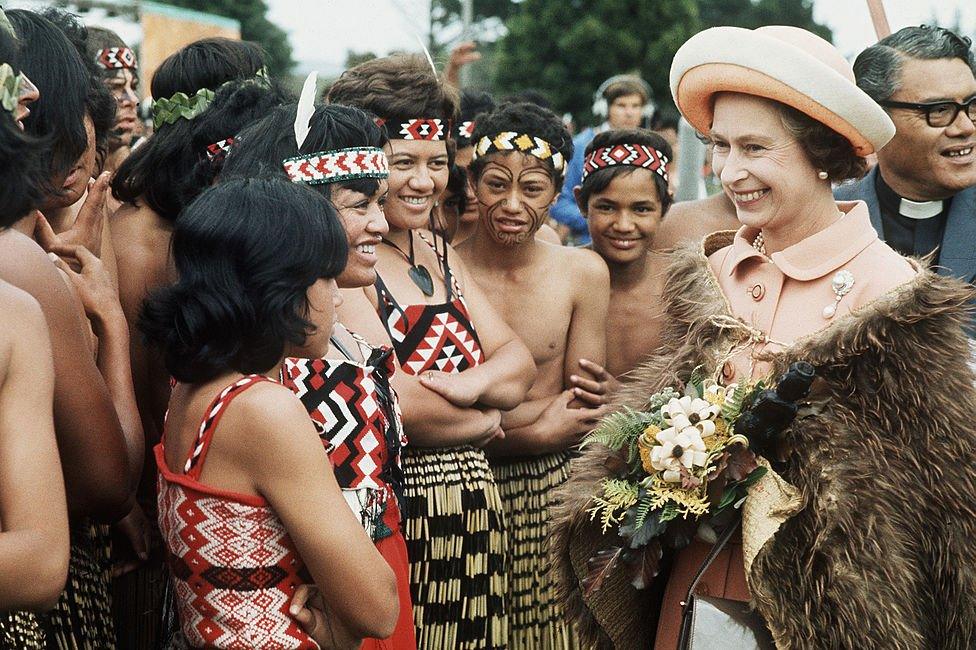
Maori say Queen Elizabeth's efforts don't mean they have "moved on" from their colonial past
"The wrongs were more institutional, but Queen Elizabeth was very quick to be there in person to do all she could do to right that wrong," says Ngira Simmonds, chief of staff to Māori King Tūheitia.
"But this is hard. I don't want to give the impression that we've all just moved on. We've not."
There has been an evolution in Māori culture and heritage during Queen Elizabeth's lifetime.
At a Te Pa o Rakaihautu Māori school in Christchurch, the long hallway between classrooms is adorned with hundreds of pupil portraits - all with traditional Tā moko or facial tattoos painted on.
Rangimarie Parata-Takuru, the school chair, is moved to tears as she tries to explain what this means to her.
"This would not have been possible in school when I was growing up. You had to leave your Māori heritage at the school gates if you wanted to succeed," she says.
"These children here get to be themselves. They get to be Māori and they get a chance to succeed."
Some of the girls at the school are organising a fundraiser to go horse riding. All thoughts of the British monarchy are far from their minds.
But when asked about it, they all have an answer.
"I did hear she was a very lovely Queen to all of us and she did respect our Māori culture," said 12-year-old Maisha.
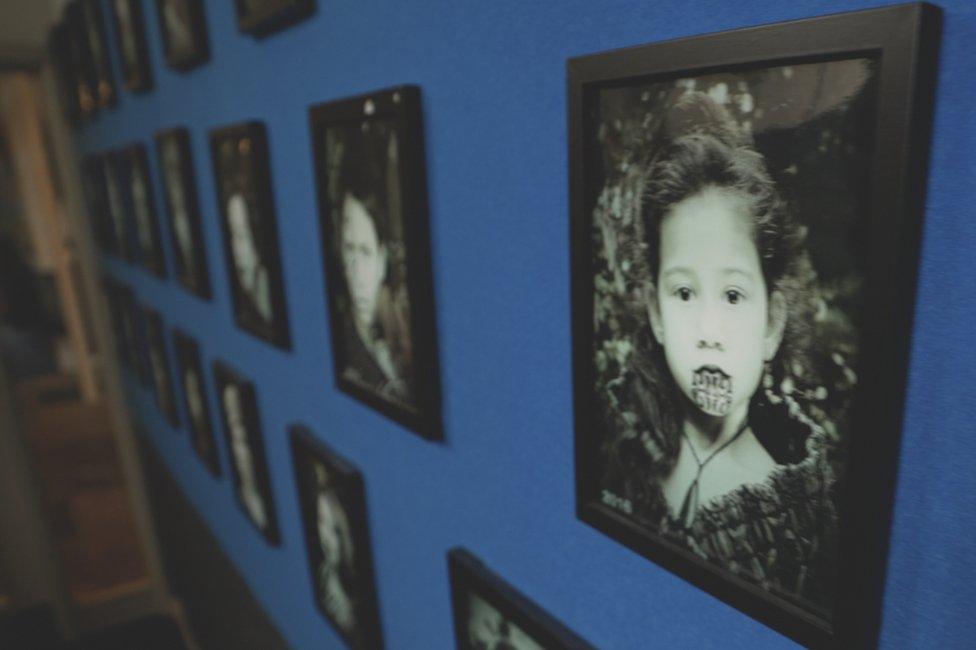
The school's hallway is lined with portraits of Maori children
"She's a big part of New Zealand and she will have a big legacy," she added.
Several of them talked about how some people were "mean" to them because of their darker skin colour.
"Some people look down on us Māori," said 11-year-old Kourage. "If they get to know us more - they will see that we are nice."
Mr O'Regan had spoken of his dream to pursue "a healthy bicultural society". But these comments suggest that there is still a lot of work to be done.
The death of the Queen will certainly give many in New Zealand pause for thought about what the future holds.
Prime Minister Jacinda Ardern said earlier this week that her government will not pursue any moves to change the country into a republic for now, but she did say a referendum could happen in her lifetime.
New Zealanders don't get up in the morning and discuss the constitution over coffee. But it may become a part of the country's conversation in the future.
When Maisha was asked what she thought of King Charles III, she said that the Māori people already have a King.
But, she added, "it's alright to have another one".


Related topics
- Published8 September 2022
